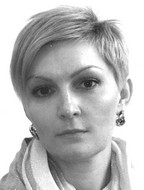Health -deficient students' socializing individual education trajectories offered in adaptive physical education system
Фотографии:
ˑ:
PhD, Associate Professor E.M. Golikova1
Dr.Hab., Professor L.I. Lubysheva2
1Orenburg State Pedagogical University, Orenburg
2Russian State University of Physical Education, Sport, Youth and Tourism (GTSOLIFK), Moscow
The health-deficient students’ (HDS) social development process is often limited by evolution of the individual psycho-physiological conditions triggered by a variety of disease-related factors that effectively restrict their future career opportunities, learning progress and social activity efficiency. The study found that presently the national education system is contradictory in its views on the HDS socializing process: on the one hand, it welcomes the HDS inclusion in the education process; and on the other hand, the existing academic social and education environment is underdeveloped for services to HDS being effective and efficient. The study was intended to bridge this gap by a special HDS socializing and functionality building model developed and piloted in the academic education curricula with the HDS education trajectories being individualized in the adaptive physical education system and the socializing progress components being rated in the education process.
Keywords: health-deficient students’ socializing process, adaptive physical education, individual education trajectories.
References
- Akhmetshina Y.V. Razvitie sotsialno-lichnostnoy kompetentsii studentov ekonomicheskogo vuza [Sociopersonal competence building in economics university students]. Vysshee obrazovanie segodnya, 2009, no. 2, P. 35.
- Belikov V.A. Didaktika uchebno-poznavatelnoy deyatelnosti [Didactics of educational and cognitive activity]. Moscow: Pero, 2017, 296 p.
- Golikova E.M., Pankratovich T.M., Tissen P.P. Individualnye traektorii inklyuzivnogo obucheniya studentov s OVZ v fizkulturnom obrazovanii [Adaptive physical education tools applicable in individual academic education trajectory design technologies]. Teoriya i praktika fizicheskoy kultury, 2016, no. 1, pp. 37-38.
- Golikova E.M. Realizatsiya pedagogicheskoy kontseptsii sotsialnogo razvitiya lichnosti studentov s ogranichennymi vozmozhnostyami zdorovya [Personal social developmental education concept in application to students with health limitations]. Fizicheskaya kultura: vospitanie, obrazovanie, trenirovka, 2016, no. 6, pp. 53-55.
- Larionova S.A. Sotsialno-psikhologicheskaya adaptatsiya lichnosti: teoreticheskaya model i diagnostika [Socio-psychological adaptation of individual: theoretical model and diagnostics]. Belgorod, 2002, 200 p.
- Lubysheva L.I. Sportizatsiya v sisteme fizicheskogo vospitaniya: ot nauchnoy idei k innovatsionnoy praktike [Sportization in physical education system: from scientific idea to innovative practice]. Moscow: Teoriya i praktika fizicheskoy kultury i sporta publ., 2017, 200 p.
- Petrovskiy A.V. Psikhologiya i vremya [Psychology and time]. Piter. 2006, 640 p.
- Pristupa E.N. Sotsialnaya rabota s litsami s ogranichennyimi vozmozhnostyami zdorovya. Ucheb. posobie [Social work with disabled people. Study guide]. Moscow: Forum: INFRA-M, 2015, 160 p.




 Журнал "THEORY AND PRACTICE
Журнал "THEORY AND PRACTICE